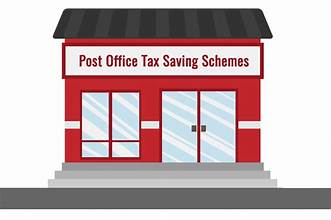Investing in postal savings schemes or any other saving scheme? It’s essential to know that not all investments made in the post office qualify for tax benefits. While there are several investment schemes initiated by the government that offer good returns, not all of them provide tax benefits under Section 80C of the Income Tax Act, 1961. Let’s delve into such schemes in detail.
1. Mahila Samman Savings Scheme
The Mahila Samman Savings Scheme 2023, introduced by the Indian government, is specifically designed for women. The aim of this scheme is to promote saving habits among Indian women. There’s no age limit to avail benefits from this scheme, but residing in India is a prerequisite. Interest earned under this scheme is taxable, meaning you won’t receive tax exemptions similar to Tax Saving Fixed Deposits. Tax will be deducted at source (TDS) based on the individual’s tax slab and income earned from interest.
2. National Savings Time Deposit Account
In the post office, you can open a Time Deposit Account for one, two, three, or five years. You have the option to extend this period later. For instance, for one year, you’ll earn an interest of 6.9%, 7.0% for two years, and 7.1% for three years. Depositing funds in a five-year time deposit account in the post office can grant you an income tax exemption. Investments up to one and a half lakh rupees are eligible for tax deduction under Section 80C of the Income Tax Act, 1961. However, this benefit isn’t applicable to investments less than this amount.
3. National Savings Recurring Deposit Account
This guaranteed scheme by the postal department offers a yearly interest rate of 6.7% for a duration of five years. Compound interest is also accrued annually. The unique feature of this scheme is that it allows individuals to open accounts singly or jointly. Additionally, you can start benefiting from this scheme by depositing a minimum of 100 rupees monthly or its multiples. There’s no limit to the amount you can deposit.
4. Kisan Vikas Patra
Investing in Kisan Vikas Patra won’t fetch you any income tax benefits. Many individuals are confused about whether investments made under this scheme qualify for tax benefits. However, the interest earned annually on the deposited amount is taxable as ‘Income from other sources.’ The advantage here is that no TDS is deducted upon maturity. Despite the lack of tax exemptions, Kisan Vikas Patra remains a secure investment option.
5. Post Office Monthly Income Scheme
For investment options, the Post Office Monthly Income Scheme can be a good choice. You can invest starting from 1,500 rupees up to a maximum of 9 lakh rupees. In joint accounts, you can invest up to 15 lakh rupees. The scheme offers an interest rate of 7.4% per annum, but it is taxable. This investment doesn’t fall under Section 80C of the Income Tax Act, 1961. TDS is deducted on interest earned above 40,000 rupees, with a higher limit for senior citizens.




